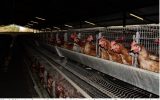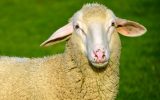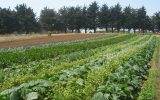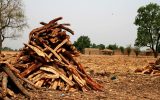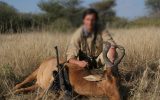Earlier in March, Meatco had a meeting with the Namibian high commissioner to Ghana, H.E. Selma Ashipala – Musavyi. The meeting entailed on how Namibia could explore new African markets through the African Continental Free Trade Agreement (AfCFTA).These different African market opportunities are explored in order to export Namibian beef products.
In an exclusive interview with Namfarmers; Rosa Thobias, Meatco`s Stakeholder Relations & Corporate Affairs stated that, at this point in time, the discussion have been elevated to Embassy and diplomatic level. “We are engaging, we are busy doing vigorous consultation and as soon as that is finalized and rubber-stamped, the public will be notified”, says Rosa.
The news at which African markets are expected to savour premium beef from Namibia, comes during a critical time as the national herd/stock is still busy in the process of restocking. For the past couple of years, Namibia have been going through several droughts which brought about a shrink to the national herd.
According to Rosa, Meatco will be very creative in term of sourcing their raw material (cattle). “One of the method in which we will be sourcing our cattle is buying on permit days”, stated Rosa. Permit days is a way of marketing especially when farmers from communal areas, market their livestock through an organized permit day.
Rosa further added that, Meatco will also be procuring directly from farmers and auctions. “We want a long term and sustainable relationship with our livestock producers. Hence, we are urging all local & loyal producers who have been marketing with Meatco for ages, to still continue with Meatco as the right partner in terms of marketing their livestock”, says Rosa.
Meatco is also busy signing fixed-term contract with their loyal producers. According to Rosa, if it happens that there would be a need for more slaughter cattle & the demand is higher than what the local is able to provide, then they will explore the possibility of acquiring cattle from Botswana.
Namibia and Botswana are known to have the same animal welfare standard, as they both do not use any hormone and they are on the same level in terms of their livestock welfare. “Should we have a shortage of more slaughter cattle, then Botswana is the next natural available option”, says Rosa.
In a normal circumstances, it can take two (2) to four (4) years for the national herd to rebuild. This would normally occur, provided that it continues to rain throughout and there are no any drought spell. At the moment, one can`t exactly fully say of when will the national herd reach normal level, because of the uncertainty that the future holds and the many external factors that affects the livestock industry.
“We are living in a very volatile and uncertain world, so we cannot really give the exact number of years that it will take to rebuild our national herd because so much in the industry depends on the climate and environment”, stated Rosa.
Rosa encouraged the industry and the playmakers within it, to be stronger than ever, unite & collaborate in order to make sure that it is sustainable in the long run.





